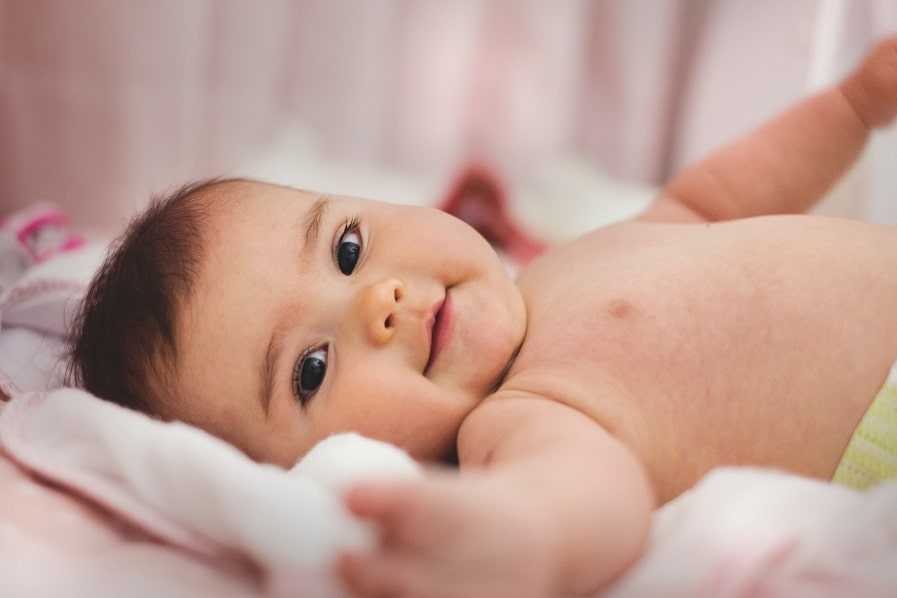IVF Treatment in New Delhi – Let’s gather all the important aspects about it

IVFTreatment in New Delhi is considered as the most preferred and best way to resolve infertility issue in both men and women. During the IVF treatment in New Delhi, embryo is formed by mixing the sperm and eggs of the couple, who wish to have a child by the fertility treatment and unable to achieve the natural pregnancy by undergoing natural method. IVF treatment is not the only method to treat infertility issues, but what we can say that this is the treatment that works well with other ART techniques to give a better result. That is why; IVF is well-thought-out as the common ART treatment to eliminate the infertility problem in males or females.
IVF Treatment in New Delhi – In Vitro Fertilization is also in general known as Test-Tube Baby program, where the embryo is created inside the fertility lab and then kept into the uterus of the woman to carry the pregnancy (If implantation happens). Since IVF is one of the advanced procedures of Assisted Reproductive Technology (ART), it follows a systematic step under the guidance of fertility experts. Both – a male and his partner need to come to the fertility centre as per the instruction provided by the fertility expert. Throughout the IVF Treatment in New Delhi, a woman is majorly responsible for achieving a successful outcome in the treatment, why? This is because some factors are responsible for IVF success rate and one of the significant roles of it is the woman’s egg quality.
Yes, there comes the main key-point factor to have a successful result of IVF is the eggs given by the woman during the second step of IVF in New Delhi – Retrieval of the eggs. And what makes egg quality good – it is the age of the woman. If the woman is under 32, the egg quality would be good enough for the fertilization and thus it becomes a healthy embryo for implantation. As the age steps-up of the woman, the quality of the eggs and of course, the ovarian reserve of the woman gets poor. You can say a woman can conceive easily using her own-eggs if she is under the 35 age. But that doesn’t mean a woman who is in the age group of 35-40 cannot conceive, yes, she can. IVF can result a good outcome and if the woman is receiving failure using her own-eggs then she should go for the donor eggs (after the recommendation by the fertility expert).
IVF Treatment in New Delhi Let’s read who are suitable for:
- Women who have been trying to get pregnant for the past twelve month (who are under 35)
- Women who have lost the capacity to get pregnant by her own eggs (IVF with donor egg could be the best option)
- Women who have poor ovarian reserve
- Women who are suffering from irregular or delayed menstruation
- Endometriosis
- Couples who have received a failure of IUI treatment or other basic medication, they should go for IVF treatment in New Delhi
IVF Treatment in New Delhi Procedure of IVF Treatment– Step by Step Guide
- Stimulation of the Ovary
The very first step of IVF in New Delhi is hormonal stimulation or we can say that the woman is ovary gets stimulated giving the fertility medication and hormonal injections. On the second or third day of your period, you may begin ovarian incitement medication that influences the ovary of your to produce matured and multiple eggs or oocytes. This implies you inject yourself with prescription containing the FSH and at times luteinizing hormone (LH). The objective is to deliver more than one egg.
You must be thinking for how many days it would be long? You will have to be in the medication for at least ten to twelve days, while the specialist screens the quantity of ovarian follicles and their development by means of ultrasound in the best fertility center.
Afterward, you may need to take other drug to enable your eggs to develop or to keep your body from discharging the eggs too soon. This relies upon the aftereffects of your blood and ultrasound tests.
During this process, your fertility specialist will screen or evaluate the development and improvement of the follicles by the guidance of ultrasound. From the outset, this may incorporate blood work to examine your estradiol levels, and ultrasounds, to screen the oocyte development. So, basically by the means of blood hormonal test and ultrasound, the specialist will observe the exact development of the follicles. Observing the cycle is significant, as it enables your PCP to choose whether or not the drugs should be expanded or diminished in dose.
2. It’s the Time for ‘Trigger-Shot’
This is also the major part of the IVF step, known as trigger-shot process. Once the specialist confirms about the maturity of the eggs and ready for the retrieval, there gets this injection. This is an hCG injection and typically this is given when at least four follicles have become 18 to 20mm in size (and estradiol is greater than 2,000pg/ML).
3. Process of Egg-Pick up
Your eggs have now developed, and 34 to 36 hours after the above given injection (hCG), it is the time for the eggs to be gathered them from your ovaries. It’s a speedy methodology, however performed under sedative. A woman will be given a local anesthesia during this procedure to avoid any discomfort that might happen.
Then the fertility specialist gathers your eggs by the guidance of transvaginal ultrasound. How the eggs are picked-up? The eggs are picked-up by a hollow needle with suction and passes through the vagina, getting each egg from the follicles. Once the eggs are retrieved, the eggs are then put in a culture, in a dish, where they are evaluated.
The egg-retrieval process is one of the crucial steps of IVF in New-Delhi and also you can say it as a minor-surgical method. After the method, you may feel some uneasiness. You will be recommended some medicines from the expert and the discomfort (if she is facing), it will be lighten-up following a couple of days.
4. Collection of the Semen Sample
On the day of egg-retrieval procedure of IVF Treatment in New-Delhi, the semen sample is collected by the male partner. The semen liquid gets out-of-the-way from the sperm, and the sperm is set up for treatment in the fertility laboratory.
What if the sperm is less motile and unable to swim by own to reach the egg’s wall? Well, in the event that partner’s sperm is less motile, the sperm is directly injected into the egg – by the technique of ICSI procedure. ICSI is the advanced process of ART and influence the chances of successful insemination. If the male can’t discharge the sperm in his ejaculation, or if his discharge doesn’t contain sperm, then the team of We Care IVF Surrogacy will give the option of Surgical Sperm Retrieval to retrieve the sperm directly from the male. By this process, sperm is surgically retrieved directly from the testicles of the male – known as surgical sperm retrieval procedure.
On the off chance that it is known ahead of time that there are no sperm found in the testicles or the couple has refused to go for the surgical method, then the fertility expert would give the option for donor sperm with the IVF treatment.
Well, these were some options, when there gets the issue of sperm production.
Fertilization Procedure
The sperm and eggs are then mixed in a culture dish. The culture dish can have up to 100,000 sperm for each egg. The procedure is checked the next day. If the sperm has successfully fused into the egg’s wall and get into the cytoplasm of the egg, fusion begins.
If the step goes well, soon embryo is formed.
Embryo Transfer
Around five days after the egg-retrieval procedure of IVF in New-Delhi, the fertility specialist now starts the process of the embryo transfer. The eggs that have been well fertilized with the sperm and became healthy embryo, is transferred into the uterus of the woman for the implantation. Usually one or two embryos are transferred back into the woman’s uterus for further procedure.
This methodology is snappy and typically easy, so you needn’t bother with a sedative. During the process of embryo transfer, the specialist embeds a catheter through your cervix — like having a pap smear. This permits the fertility expert to deliberately put the healthy embryo into the endometrium of the uterus.
If the couple wants to have more embryos transfer to avoid the failure of IVF, it is conceivable to move more than one embryo – it’s up to the couple’s choice. If there gets more than one embryo transfer, the woman might have the risk of multiple pregnancies. At our team, the specialist just considers moving more than one embryo in very rare cases of the couples’ IVF.
Closing Lines
IVF Treatment in New Delhi is the best way to say good-bye from your childlessness days, but you need to make sure that you are selecting the appropriate centre for the treatment that is authentic and right for you. You need to ensure and cross-check the success rate of the centre and ask for the breakdown of the cost of the treatment.
If you have any question related to the infertility or about the IVF treatment, you can contact the support team of We Care IVF Surrogacy.



